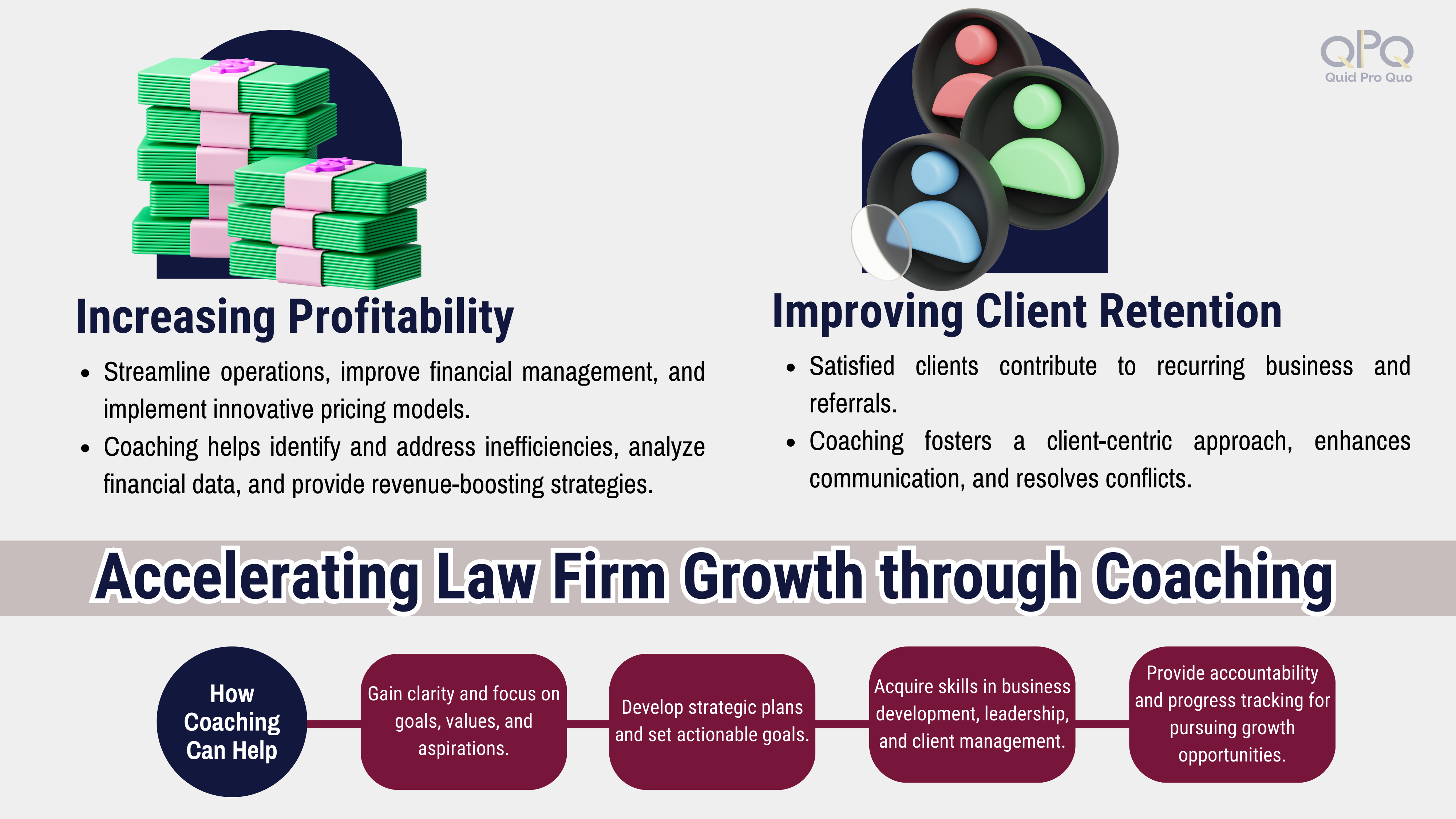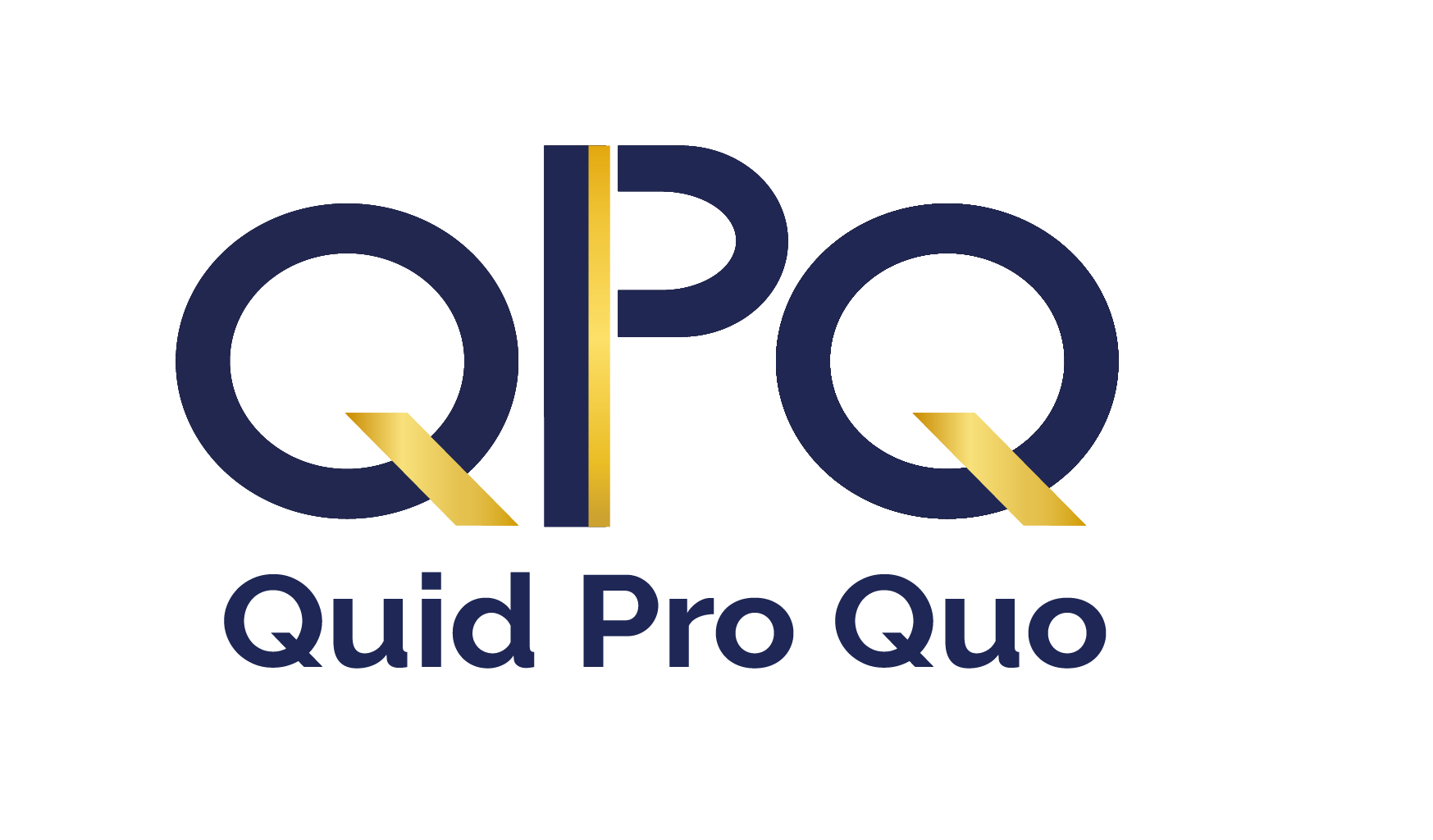People and organizations alike are continuously looking for methods to realize their full potential and experience significant progress in today’s fast-paced and competitive environment. One powerful tool that has gained significant recognition in recent years is coaching. Using their abilities, overcoming obstacles, and achieving their personal and professional objectives are all made possible via the dynamic process of coaching. Its influence is felt in a variety of industries, including the legal sector, where coaching is gaining popularity due to its capacity to change law firms and advance the careers of attorneys from different practice areas.
Coaching, in essence, is a collaborative partnership between a trained professional, known as a coach, and an individual or a group. In contrast to conventional mentoring or consulting, coaching enables people to find their own insights, unleash their potential, and take deliberate action in the direction of their goals. This self-directed approach makes coaching an extraordinarily potent instrument for personal and professional improvement.
The impact of coaching goes beyond surface-level improvements. It explores the deeper levels of a person’s mindset, actions, and beliefs in order to promote transformation and long-lasting change. Coaches create space for self-reflection, exploration, and learning by offering a supportive and judgment-free environment. They give direction, pose challenging questions, and challenge presumptions in order to help people clarify their thoughts, widen their perspectives, and realize their full potential.
Coaching in the Legal Industry
For attorneys and law firm owners looking to improve their performance, grow their companies, and navigate the complexities of their careers, coaching has become a valuable resource in the legal sector. It provides a distinctive fusion of expert advice, emotional support, and strategic planning catered exclusively to the need of legal professionals.
Lawyers who receive coaching are better able to identify their areas of strength, weakness, and improvement. They are able to recognize and deal with any roadblocks to their development, such as limiting beliefs, self-doubt, or bad behaviors. Coaching assists attorneys in acquiring the abilities, frame of mind, and resiliency needed to succeed in a constantly changing legal environment.
Coaching provides law firm owners with important support in making strategic decisions, developing their leaders, and building a productive workplace culture. It aids in locating opportunities for growth, establishing objectives, and putting action plans into place that are consistent with the company’s vision and values. Additionally, coaching encourages productive internal communication, teamwork, and dispute resolution, which boosts output, fosters employee happiness, and eventually leads to success.
Identifying Growth Opportunities

Finding growth opportunities is essential for law firms to stay competitive, grow their clientele, and reach their full potential. Growth can take many different forms, such as extending the scope of one’s practice, raising profitability, or enhancing client retention. Law firms may position themselves for long-term success by seeing and seizing these possibilities. This is where coaching is essential for assisting law firms in navigating the terrain of expansion.
Increasing Profitability: Enhancing profitability is a common objective for law firms seeking growth. This can involve streamlining operations, improving financial management, or implementing innovative pricing models. Coaching can help law firms identify and address potential inefficiencies or bottlenecks that may be hindering profitability. A coach can analyze financial data, assess billing structures, and provide guidance on strategies to boost revenue and reduce costs. Through coaching, law firm owners can gain fresh perspectives, identify untapped revenue streams, and implement effective financial management practices to drive growth and profitability.
Improving Client Retention: Client retention is another critical aspect of growth for law firms. Satisfied clients not only contribute to recurring business but also act as brand ambassadors, referring new clients to the firm. Coaching can help law firms improve client retention by fostering a client-centric approach. Coaches can guide lawyers in enhancing their client communication and relationship-building skills. They can also provide strategies for delivering exceptional client experiences, managing client expectations, and resolving conflicts. By focusing on client satisfaction and building strong relationships, law firms can enhance client retention rates and create a foundation for sustained growth.
Overcoming Limiting Beliefs and Mindsets
In the pursuit of law firm growth, individuals may encounter limiting beliefs and mindsets that hinder their progress. Self-doubt, imposter syndrome, fear of failure, or a fixed mindset can all impede the realization of full potential. Fortunately, coaching offers a transformative approach to addressing these psychological barriers and unlocking growth.
Addressing Limiting Beliefs and Mindsets: Coaching provides a safe and non-judgmental space for lawyers and law firm owners to explore and challenge their limiting beliefs and mindsets. Through powerful questioning techniques and supportive guidance, coaches help individuals identify self-imposed limitations and their underlying causes. By bringing awareness to these beliefs and mindsets, individuals can begin to challenge and reframe them.
Overcoming Self-Doubt and Imposter Syndrome: Self-doubt and imposter syndrome are common challenges that can plague even the most accomplished lawyers. Coaching supports individuals in developing self-awareness and self-compassion. Coaches help individuals recognize their unique strengths, accomplishments, and capabilities, allowing them to build confidence and overcome self-doubt. By reframing negative self-perceptions and embracing a growth mindset, lawyers can step into their full potential and pursue growth opportunities with conviction.
Power of Mindset Shifts: Mindset plays a crucial role in unlocking growth potential. A growth mindset, characterized by the belief in one’s ability to develop and improve, is essential for embracing challenges, learning from setbacks, and persisting in the face of obstacles. Coaches facilitate mindset shifts by guiding individuals to focus on possibilities, adopt a proactive and solution-oriented approach, and cultivate resilience. By transforming limiting mindsets into growth-oriented ones, lawyers and law firm owners can tap into their full potential and maximize their growth opportunities.
Measuring the Impact of Coaching
Measuring the impact of coaching initiatives is vital to assess their effectiveness and provide valuable insights for ongoing improvement. Here’s why measuring coaching impact is crucial:
- Evaluation and Feedback: Measuring coaching impact allows law firm owners and individual lawyers to receive objective feedback on their progress and performance. It provides a structured approach to evaluate the effectiveness of coaching interventions and identify areas for further growth.
- Accountability and Motivation: Establishing key metrics and tracking progress creates a sense of accountability for the coaching journey. It motivates individuals to stay committed to their growth goals, fosters a sense of ownership, and provides a benchmark for monitoring improvement over time.
- Return on Investment: Measuring the impact of coaching initiatives enables law firm owners to assess the return on investment (ROI) of coaching. By correlating coaching outcomes with tangible results, such as revenue growth, client satisfaction, employee retention, and individual performance, firms can determine the value that coaching brings to their business.
- Continuous Improvement: Measuring coaching impact offers valuable data to coaches and law firm owners for ongoing improvement. It provides insights into what is working well and what may require adjustment in coaching strategies, approaches, or focus areas. This iterative process ensures that coaching initiatives align with the specific needs and goals of the law firm.
By measuring the impact of coaching, law firm owners and individual lawyers can gain a comprehensive understanding of how coaching has influenced their growth journey. It allows them to celebrate successes, make informed decisions, and continuously optimize their coaching experiences for maximum impact.
If you are interested in learning more about our coaching services, book a free 45 min call.
To read more blog articles by QPQ Law, click here.

